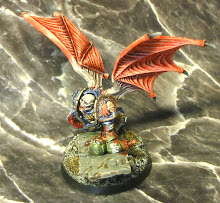When I was in the school my reaction was not that good because I dont know how to deal with negative peers thats why I can't do anything about it. My decision was very bad and I feel I'am so not lucky. I have learned that negative peers can help you learn something about negtive peers and also you will kmow how to deal with this negative peers.
OMEGA

Monday, September 3, 2007
TENTH MEETING: DEALING WITH NEGATIVE PRESSURE

The word conformity comes from the root word “conform” which means do as others do, adapt, comply, be or become similar, to be in agreement, to act in accordance. Conformity therefore refers to a person’s wish or desire to be like everyone else, to do what everybody does, to wear what the majority wears, to speak the way other people speak. In vernacular, to conform means gusto natin maging “in” sa grupo, gusto natin sumunod sa uso or in terms of relating with other people, nakikisama tayo, nakikigaya sa karamihan. Conformity becomes a problem when you start giving in to that familiar saying that goes “when you’re not in, you’re out”, when you begin to have difficulty maintaining your own belief in the face of others, when you begin accepting other people’s ideas even if you do not fully agree with them. You conform because you want to be accepted, you are afraid to be different from the majority. Takot kang maging iba, Takot masabihan o mapagtawanan ng iba. Part of growing up is learning to stand for what you believe in and not on what others are doing or saying.
“Pakikisama” as a form of “pakikipagkapwa” in our culture is just one of the many levels and modes of social interaction we use in relating with other people. And for teenagers like you, pakikisama is important in relating with your barkada or peer group. And most of the time, the young Filipino teen is put into great pressure na makisama or else KJ ka or di ka “in” sa grupo or “boring ka”. Whatever the reason, whatever the circumstances, the usual result is that the teen would rather “give in” and conform to what the barkada wants rather than to be labeled KJ or worst to become an outcast or walang kabarkada. Teenagers nowadays call those teen who cause trouble “BI or Bad Influence”. And although some could resist, most of the time teen have difficulty saying “NO” to these pressures.
One reason why conformity is dangerous is that more often than not, it can cause a person to do wrong things or it can lead a person to do dangerous things like smoking, taking drugs, drinking liquor, joining fraternities or gangs, or even rob someone. When a person doesn’t have the courage to be different and take a stand on his own values and beliefs, that person becomes an easy prey or target of PEER PRESSURE and that person can easily be swayed or persuaded to do things he doesn’t want to do in the first place. That’s why it is important to have real friends, people whom you can trust and depend on no matter what, people who listen and care enough to understand your strength and weaknesses, and people who believed and accept you for what you are.
Peer pressure is a social force exerted by a group or powerful/admired individual within a group. It is generally a pressure to conform to a social norm within any given group. Not all peer pressure is bad. Social norms are a very important part of human interaction and group dynamics. Social norms are expectations that a group has of its members usually related to behavior. Since most social norms contribute to the smooth interaction of individuals within a society, peer pressure that promotes conforming to these norms serves a positive purpose. When social norms become deviant or harmful or when the social norms in a group are radically different to the generally accepted social norms of a society, then we consider them to be "bad". When most people think of peer pressure they are thinking of the pressure to conform to a deviant behavior set. Things like drug use, underage alcohol use, promiscuous sexual conduct, violent or aggressive acting out, or criminal behavior are examples of the negative peer pressure associated with teens.
(Source: Making a Difference for Teens, Lito S. Jara, 1998)
Tips on dealing with Negative Peer Pressure by Alison Bell
1. Ask 101 Questions. For example, if a pal pressures you to smoke, ask him why he smokes, how long had he smoked, if he minds astray breath. Asking questions puts the other person on the defensive.
2. Say No like You Mean It. Make eye contact, and then say forcefully, with authority. The more certain you are in your refusal, the less people will bug you.
3. Back up a No with a Positive Statement. For example, if you’re turning down an offer to smoke pot, say something like, “I like my lungs the way it is, thanks.”
4. Be Repetitive. Don’t hesitate to state your position over and over again.
5. Practice Saying No. Practice saying NO in safe environment, like when your big brother asks you if you’d like to spend Saturday night doing his laundry.
6. Get away from the Pressure Zone. Leave the scene………… Make your exit.
7. Avoid Stressful Situations in the First Place. If you know there’s going to be an alcohol or drugs at the party, make other plans. Or, if you’re going out with a guy, avoid being alone with him.
8. Use Buddy System. Find a friend who shares your values and back each other up.
9. Consider the Results of Giving In. Take a moment to think about the consequences of your actions.
10. Look for Possible Role Models. Ever notice that the real popular and successful students in your school are those who aren’t afraid to say what they like and don’t like?
11. Don’t buy the line that “Everyone is Doing It”. The truth is, everyone is not doing it.
12. Seek Support. Talk out any peer pressure you’re experiencing with other friends who are also feeling the squeeze. It can be reassuring to know that you’re not the only one.
13. Be your Own Best Friend. Remind yourself every now and then that you’re special and don’t mind any negative statements.
14. Evaluate Your Friendships. If your friends are always bugging you to do something you’re not comfortable with, remember that true friends like you for who you are, not who they want you to be.
15. Find New Friends. If you decided that your friends don’t have your best interests at heart, search out new friends who share your values and interests.
IV. Journal Writing
1. Cite one experience wherein you have experienced negative peer pressure.
2. How did you react to it? Why?
3. How did you feel about your reaction/decision?
4. What have you learned/realized from your experience?
“Pakikisama” as a form of “pakikipagkapwa” in our culture is just one of the many levels and modes of social interaction we use in relating with other people. And for teenagers like you, pakikisama is important in relating with your barkada or peer group. And most of the time, the young Filipino teen is put into great pressure na makisama or else KJ ka or di ka “in” sa grupo or “boring ka”. Whatever the reason, whatever the circumstances, the usual result is that the teen would rather “give in” and conform to what the barkada wants rather than to be labeled KJ or worst to become an outcast or walang kabarkada. Teenagers nowadays call those teen who cause trouble “BI or Bad Influence”. And although some could resist, most of the time teen have difficulty saying “NO” to these pressures.
One reason why conformity is dangerous is that more often than not, it can cause a person to do wrong things or it can lead a person to do dangerous things like smoking, taking drugs, drinking liquor, joining fraternities or gangs, or even rob someone. When a person doesn’t have the courage to be different and take a stand on his own values and beliefs, that person becomes an easy prey or target of PEER PRESSURE and that person can easily be swayed or persuaded to do things he doesn’t want to do in the first place. That’s why it is important to have real friends, people whom you can trust and depend on no matter what, people who listen and care enough to understand your strength and weaknesses, and people who believed and accept you for what you are.
Peer pressure is a social force exerted by a group or powerful/admired individual within a group. It is generally a pressure to conform to a social norm within any given group. Not all peer pressure is bad. Social norms are a very important part of human interaction and group dynamics. Social norms are expectations that a group has of its members usually related to behavior. Since most social norms contribute to the smooth interaction of individuals within a society, peer pressure that promotes conforming to these norms serves a positive purpose. When social norms become deviant or harmful or when the social norms in a group are radically different to the generally accepted social norms of a society, then we consider them to be "bad". When most people think of peer pressure they are thinking of the pressure to conform to a deviant behavior set. Things like drug use, underage alcohol use, promiscuous sexual conduct, violent or aggressive acting out, or criminal behavior are examples of the negative peer pressure associated with teens.
(Source: Making a Difference for Teens, Lito S. Jara, 1998)
Tips on dealing with Negative Peer Pressure by Alison Bell
1. Ask 101 Questions. For example, if a pal pressures you to smoke, ask him why he smokes, how long had he smoked, if he minds astray breath. Asking questions puts the other person on the defensive.
2. Say No like You Mean It. Make eye contact, and then say forcefully, with authority. The more certain you are in your refusal, the less people will bug you.
3. Back up a No with a Positive Statement. For example, if you’re turning down an offer to smoke pot, say something like, “I like my lungs the way it is, thanks.”
4. Be Repetitive. Don’t hesitate to state your position over and over again.
5. Practice Saying No. Practice saying NO in safe environment, like when your big brother asks you if you’d like to spend Saturday night doing his laundry.
6. Get away from the Pressure Zone. Leave the scene………… Make your exit.
7. Avoid Stressful Situations in the First Place. If you know there’s going to be an alcohol or drugs at the party, make other plans. Or, if you’re going out with a guy, avoid being alone with him.
8. Use Buddy System. Find a friend who shares your values and back each other up.
9. Consider the Results of Giving In. Take a moment to think about the consequences of your actions.
10. Look for Possible Role Models. Ever notice that the real popular and successful students in your school are those who aren’t afraid to say what they like and don’t like?
11. Don’t buy the line that “Everyone is Doing It”. The truth is, everyone is not doing it.
12. Seek Support. Talk out any peer pressure you’re experiencing with other friends who are also feeling the squeeze. It can be reassuring to know that you’re not the only one.
13. Be your Own Best Friend. Remind yourself every now and then that you’re special and don’t mind any negative statements.
14. Evaluate Your Friendships. If your friends are always bugging you to do something you’re not comfortable with, remember that true friends like you for who you are, not who they want you to be.
15. Find New Friends. If you decided that your friends don’t have your best interests at heart, search out new friends who share your values and interests.
IV. Journal Writing
1. Cite one experience wherein you have experienced negative peer pressure.
2. How did you react to it? Why?
3. How did you feel about your reaction/decision?
4. What have you learned/realized from your experience?
ANSWERS(Sixth Meeting)

I was able to do the challenge and I was nervous because i mingth not do the challenge. I feel happy because I was able to do the challenge and we are very happy. I have realized that you must have trust in your el so that you can beat a challenge. It can help a lot in your next days or challenge that you may face in the future.
I also realised that every people can face or can solve any problems by having a trust in them selves but you must not someone help you in your challenge because its not that satisfying for you if you finish the challenge. That's all.............. Just like this pecture its a challenge to them to beat each other.
ANSWERS(FOURTH MEETHING)
 1. I feel bad because my some characteristic are not as that good but there are some of my positive characteristic are good for me.
1. I feel bad because my some characteristic are not as that good but there are some of my positive characteristic are good for me.2. The golden rule's meaning is that do not do bad things to others so that they will not do it to you. Its true for me because others will not do it to you if you are not bad. It can also make you a lot of friend if you are friendly.
a. I like to be treated when I'am given wrong answers in recitation I want that they will not laugh at me because it makes me sad but sometimes happy. When I'am making my opinion they should lessen because they migth get an idea. They should also give an idea for the group and choose which is the best. They should choose the rigth one for the job so that its easy to the group.
b. My commit to my self is be stronfg o that any of my problems can easely br solve by me without getting any help of other people. I must study hard to help my parents and avoid cheating to others. I must do the requerements that the teachers is giving to me.
Sunday, August 26, 2007
ANSWERS TO THE QUESTIONS IN VALUES
 First Meeting
First MeetingThe Advantage of the Values Education to me are, you will learn how to face some problems because you now what to do to this problem. You'll now what other way in expressing your self and also you can use it in helping a friend even not clause friend.
It will help me by getting experience in this school and also the way that the school discipline.
I'll also get some information that will help me in the future and also enhance my abilities in solving some problems in the future.
Second Meeting
My First week at MCL is very exciting because I cant wait to see what kind of school it was. When I arrived at the MCL its very nice and when I take may exam I was scared because I don't have any friends yet thats why I'am scared that I migth get lost because the school is big but it lucklly I was not lost. When the first day of class came I see many students waiting outside and I don't now were I will go. But I found my cousin and his friends and I joined them. Lucklly my cousin is my classmate in class that's why I was not scared. Three days I was quite because I don't have a friend yet except my cousin but it all worked out eventhough I was quite.
Third Meeting
During the Freshman Nigth it was very good, I have seen the students injoying the night. My emotions is I was very happy also the students. The way the students express them selves.
When someone hit me because they are jumping. I realoze that it is also good relaxing sometimes and it can also help forgetting someting which is a bad experiance for you.
JOURNAL ENTRIES(Fourth Meeting)

We are now on our fourth week and these are the guide questions for your entry this week.
1. Looking back at the list of your positive characteristics and qualities, what do you feel and realize about it?
2. The Golden Rule says, "Do unto others as you would have others do unto you."
a. Given the following situations, how would you like to be treated by your teachers and schoolmates:
- when you have given wrong answers to the questions during recitation;
- when you are expressing your opinion during class or group discussion;
- when you are giving suggestions during group work or presentation;
- when you commit mistake;- when you don't like doing what they ask you to do;
- when they want to give you comments or suggestions?
b. Considering the given ideas on how to treat others with restpect what can you commit to yourself in terms of dealing with the MCL commmunity: teachers, students, employees, security, maintenance/janitors and canteen personnel?Please write you entries on time and one at a time so that your work are not filed up!Have a nice day! God bless you!Prof. RG MondezP.S. For the sixth meeting, "Competence and Excellence", prepare for a 30 seconds individual talent, skill, or accomplishment presentation. You may show your talent in singing, dancing, playing musical instrument, etc.You may also show and tell something about your masterpiece: painting, poem, essay, drawing , and project.Certificate medals, trophy, sports jersey and anything recognizing your excellence and accomplishment may be presented also.
1. Looking back at the list of your positive characteristics and qualities, what do you feel and realize about it?
2. The Golden Rule says, "Do unto others as you would have others do unto you."
a. Given the following situations, how would you like to be treated by your teachers and schoolmates:
- when you have given wrong answers to the questions during recitation;
- when you are expressing your opinion during class or group discussion;
- when you are giving suggestions during group work or presentation;
- when you commit mistake;- when you don't like doing what they ask you to do;
- when they want to give you comments or suggestions?
b. Considering the given ideas on how to treat others with restpect what can you commit to yourself in terms of dealing with the MCL commmunity: teachers, students, employees, security, maintenance/janitors and canteen personnel?Please write you entries on time and one at a time so that your work are not filed up!Have a nice day! God bless you!Prof. RG MondezP.S. For the sixth meeting, "Competence and Excellence", prepare for a 30 seconds individual talent, skill, or accomplishment presentation. You may show your talent in singing, dancing, playing musical instrument, etc.You may also show and tell something about your masterpiece: painting, poem, essay, drawing , and project.Certificate medals, trophy, sports jersey and anything recognizing your excellence and accomplishment may be presented also.
COMPETENCE AND EXCELLENCE(Sixth Meeting)
 Riley has served as the head coach of five championship teams and an assistant coach to another. He recently won the 2006 NBA Championship with the Miami Heat. Prior to his tenure in Miami, he served as head coach for the Los Angeles Lakers and the New York Knicks. He also played for the Los Angeles Lakers' championship team in 1972, which brings his personal total to seven NBA titles. He is also known for leading LA Lakers into back to back championship (1987-1988), the first team in 20 years to repeat as champions. Pat is widely regarded as one of the greatest NBA coaches of all time. (Wikipedia.org)“I do the very best I know – the very best I can; and I mean to keep on doing so until the end.” -US President Abraham LincolnAbraham Lincoln was the 16th President of the United States of America. As a child, he has to struggle for living and for learning. His family moved to Indiana when he was eight. He described their place as a wild region, with many bears and other wild animals still in the woods. But even so, he still managed to read, write and decipher. He made extraordinary effort to attain knowledge while working on a farm, splitting rails for fences, and keeping store at New Salem, Illinois. Later he found work as village postmaster and as a surveyor. In 1834 he won election to the state legislature, and after coming across the Commentaries on the Laws of England, he taught himself law. Lincoln became one of the most respected and successful lawyers in Illinois and grew steadily more prosperous. Lincoln served four successive terms in the Illinois House of Representatives, as a representative from Sangamon County, and became a leader of the Whig party in Illinois. In 1858, he ran against Stephen A. Douglas for Senator, however he lost the election, but in debating with Douglas he gained a national reputation that won him the Republican nomination for President in 1860. He was re-elected President in 1864. (Wikipedia.org)
Riley has served as the head coach of five championship teams and an assistant coach to another. He recently won the 2006 NBA Championship with the Miami Heat. Prior to his tenure in Miami, he served as head coach for the Los Angeles Lakers and the New York Knicks. He also played for the Los Angeles Lakers' championship team in 1972, which brings his personal total to seven NBA titles. He is also known for leading LA Lakers into back to back championship (1987-1988), the first team in 20 years to repeat as champions. Pat is widely regarded as one of the greatest NBA coaches of all time. (Wikipedia.org)“I do the very best I know – the very best I can; and I mean to keep on doing so until the end.” -US President Abraham LincolnAbraham Lincoln was the 16th President of the United States of America. As a child, he has to struggle for living and for learning. His family moved to Indiana when he was eight. He described their place as a wild region, with many bears and other wild animals still in the woods. But even so, he still managed to read, write and decipher. He made extraordinary effort to attain knowledge while working on a farm, splitting rails for fences, and keeping store at New Salem, Illinois. Later he found work as village postmaster and as a surveyor. In 1834 he won election to the state legislature, and after coming across the Commentaries on the Laws of England, he taught himself law. Lincoln became one of the most respected and successful lawyers in Illinois and grew steadily more prosperous. Lincoln served four successive terms in the Illinois House of Representatives, as a representative from Sangamon County, and became a leader of the Whig party in Illinois. In 1858, he ran against Stephen A. Douglas for Senator, however he lost the election, but in debating with Douglas he gained a national reputation that won him the Republican nomination for President in 1860. He was re-elected President in 1864. (Wikipedia.org)“Excellence is doing ordinary things extraordinarily well.” - John W. Gardner
John William Gardner was the former President of Carnegie Corporation, and US Secretary of Health, Education, and Welfare under President Lyndon Johnson. He founded two influential national U.S. organizations, the Common Cause and Independent Sector. He also authored numerous books on improving leadership in American society and other subjects. Gardner received the Presidential Medal of Freedom in 1964, (it is one of the two highest civilian awards in the United States and is bestowed by the US President). Gardner’s term as secretary of Health, Education and Welfare, was the height of Johnson’s Great Society domestic agenda. During this tenure, the Department undertook both the huge task of Launching Medicare, which brought quality health care for senior citizens, and oversaw a massive investment in education with the passage of federal role in education and targeted funding to poor students. Gardner also presided the creation of the Corporation for Public Broadcasting. (source: Wikipedia.org)Excellence is a process, a commitment and a challenge.
Pat Riley, Abraham Lincoln and John Gardner have proven us that achieving excellence is not impossible. To be one of NBA greatest coaches of all time is a process. He sees every game like the “Game Seven of the NBA Finals” and he takes every lost as a learning experience to improve his team’s weaknesses. Abraham Lincoln commits himself to deliver the best he knows and the best he can. This makes him one the excellent US Presidents. For John Gardner, excellence can be achieved by doing ordinary things extraordinarily well. It’s not impossible but it’s not easy either. Gardner is able to win this challenge by finding new meaning and reasons in doing every task at hand.To do good is innate among us. To do better, let’s explore our possibilities. Achieving excellence is a life time commitment to do the best we can.Challenge Yourself1. For one week, challenge yourself to:a. Get high score in a quiz or seatwork,
a. To recite in class at least once in any courses;c. To submit a quality assignment or requirementOn your journal, process your experience with the aid of the following guide questions:a. What challenge did you take?
b. Were you able to beat the challenge? How do you feel about it?c. What have you realized/learned from your experience?2. Assignment for next meetinga. Read about the effects of smoking.b. Watch the film “An Inconvenient Truth”, starring Al Gore and directed by Davis Guggenheim.
On the journal, write your reaction to the movie:- The most striking scene in the movie- Your feelings and emotions while watching the movie- Your realization after watching the movie- The specific actions you can commit to take care of the environment
Subscribe to:
Posts (Atom)
CHOAS
























